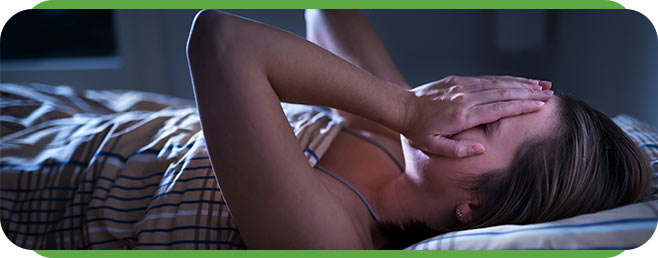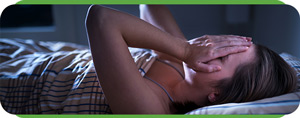Parasomnia Diagnosis, Symptoms & Treatment in Peoria – Dunlap IL
Parasomnias are combined sleep disorders that disrupt sleep and cause conditions such as sleepwalking, bruxism, RBD, sleep talking, and nightmares. If you or someone you know is suffering from parasomnias, visit our sleep clinic for a diagnosis and treatment. Contact Koala® Center For Sleep & TMJ Disorders for more information, or book an appointment online. We have convenient locations across the U.S. in Bloomington IL, Peoria/Dunlap IL, El Paso TX, and Wausau WI.




Table of Contents:
What are some common parasomnias?
How do you diagnose parasomnia?
How do you fix parasomnia?
Is parasomnia caused by trauma?
Parasomnias are a group of sleep disorders that involve abnormal behaviors or movements during sleep. Some of the most common parasomnias are:
– Nightmares – These are vivid and frightening dreams that often wake a person up from sleep. This can cause feelings of fear, anxiety, and distress.
– Night terrors – Sleep terrors are episodes of intense fear, screaming, and thrashing during sleep. Unlike nightmares, people do not always fully wake up or remember the terror.
– Sleepwalking – Sleepwalking, also known as somnambulism, is characterized by walking or performing complex activities while still asleep. Sleepwalkers usually have no recollection of their actions when they wake up.
– Sleep talking – Sleep talking involves speaking aloud during sleep without awareness. Sleep talking can be unintelligible or coherent and vary in volume and frequency.
– REM Sleep Behavior Disorder (RBD) – RBD is a condition that causes people to act out their dreams physically.
– Sleep bruxism – This is a condition characterized by teeth grinding and jaw clenching during sleep, which can lead to various dental problems and persistent jaw pain.
To receive a parasomnia diagnosis, you will need a comprehensive evaluation performed by a medical professional specializing in sleep disorders. The diagnostic process will include the following steps:
– Medical history review – The doctor will take a detailed medical history, including information about sleep patterns, symptoms, and any underlying medical conditions.
– Sleep diary – You may be asked to keep a sleep diary to track your sleep patterns and the frequency and severity of your parasomnia episodes.
– Clinical assessment – The team will conduct a clinical assessment to evaluate the severity of the signs and symptoms of suspected parasomnias.
– Observation – Input from family members or bed partners who have witnessed the episodes can provide valuable information.
– Polysomnography – In some cases, a sleep study will be recommended by the doctor. This overnight test records your heart rate, breathing, and muscle activity during sleep to identify abnormalities.
Once a thorough evaluation is complete, the expert will make a diagnosis and develop an effective treatment plan to manage and improve the symptoms you are dealing with. Treatment options for sleep-related conditions include behavioral interventions, lifestyle changes, and, in some cases, medications to regulate sleep patterns and enhance sleep quality.
Fixing parasomnia takes a comprehensive approach with a focus on addressing the root causes of the condition. This method can significantly improve sleep quality and patterns. Some helpful strategies used to successfully manage and alleviate parasomnia include:
– Sleep hygiene – Practicing good sleep habits, such as maintaining a regular sleep schedule, creating a comfortable sleep environment, and avoiding stimulants before bedtime, will promote better sleep.
– Addressing underlying conditions – Treating underlying medical and psychiatric conditions that are contributing to parasomnia will lead to both symptom and overall wellness improvement.
– Medication – In some cases, medications will be recommended to regulate sleep patterns or treat underlying conditions contributing to parasomnia.
– Stress management – Managing stress and anxiety through relaxation techniques, mindfulness, and counseling, can effectively reduce sleep disturbances.
– Sleep restriction – In specific cases, restricting time in bed can consolidate sleep and improve sleep quality.
– Safety measures – It’s important to implement various safety precautions at home to protect yourself and your bed partner from potential harm during parasomnia episodes.
Parasomnia can sometimes be triggered or exacerbated by trauma, but not all cases are directly caused by traumatic experiences. Trauma-related parasomnia can occur as a result of post-traumatic stress disorder (PTSD), which can disrupt normal sleep patterns and lead to frequent sleep disturbances, such as night terrors, nightmares, and sleepwalking.
Traumatic events can significantly impact an individual’s mental and emotional well-being as well as lead to sleep pattern changes and parasomnia episodes. It’s crucial to recognize that trauma affects everyone differently, so some people may not experience parasomnia despite experiencing significant trauma. Overall, each case is different so it’s important to seek professional guidance from a dedicated sleep team.
Other common factors contributing to parasomnia include genetics, underlying medical conditions, and certain medications. It’s essential to seek a professional medical evaluation to determine the specific factors triggering your condition and receive an effective symptom management plan.

Additional Services You May Need
▸ KoalaKIDZzz®
▸ Sleep Apnea
▸ Snoring
▸ TMJ Disorder
▸ Fatigue
▸ Sleep Disorders
▸ Weight Loss
▸ CPAP Alternative
▸ Oral Appliances




